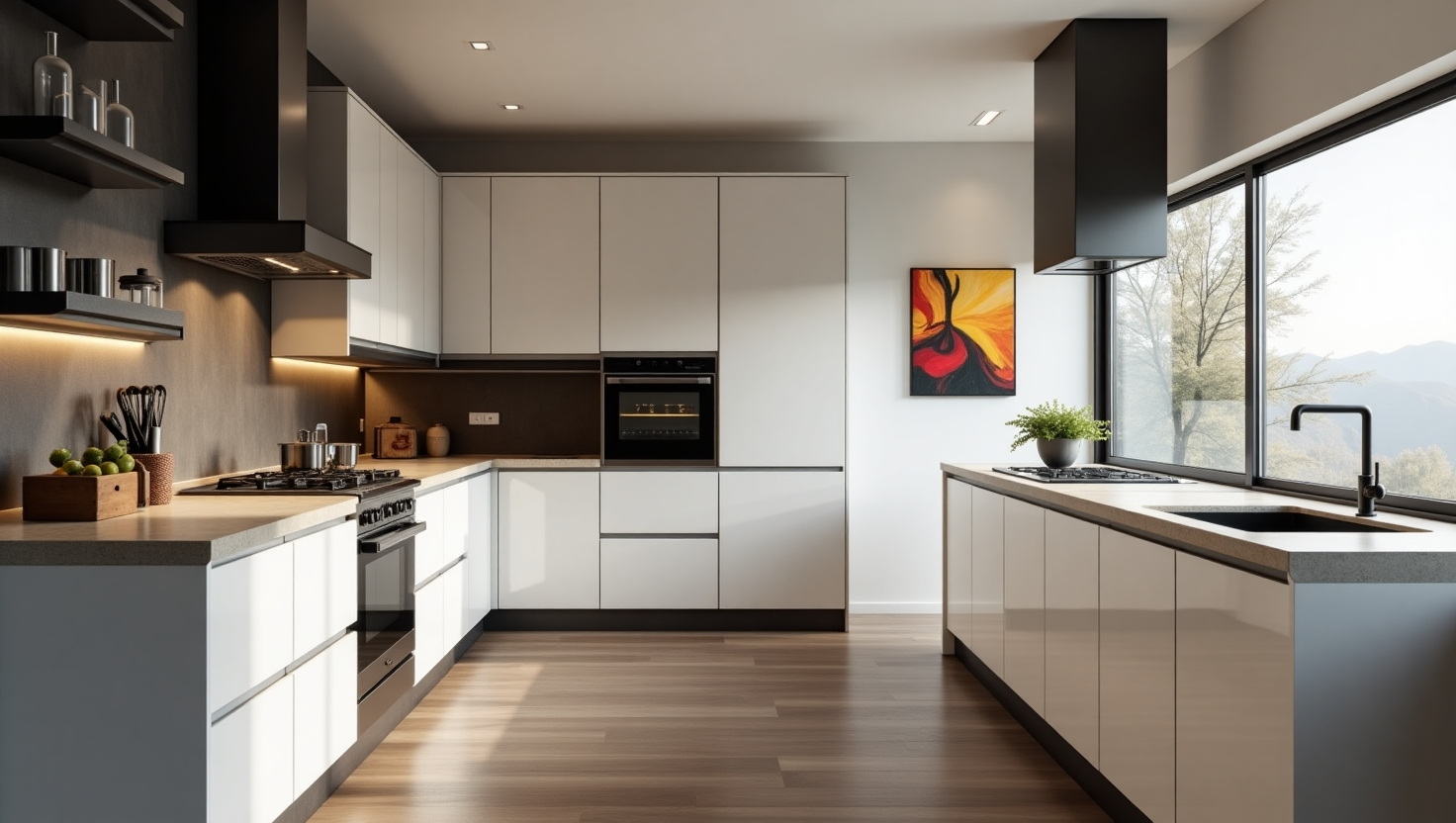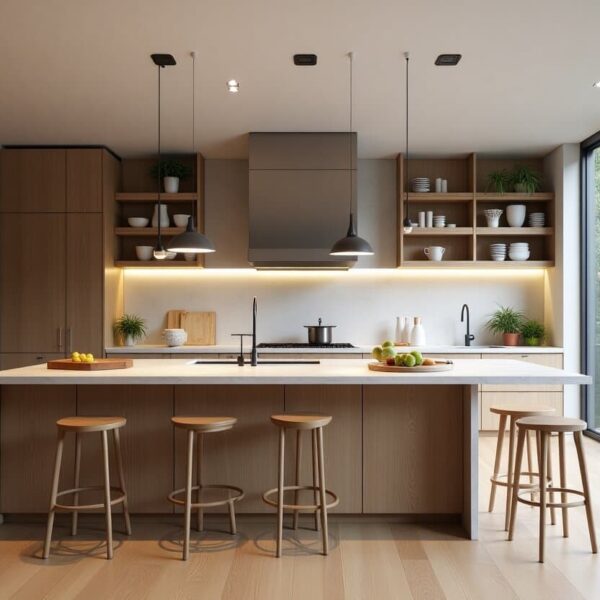If you’re a buyer, developer, or interior designer sourcing custom kitchen cabinets from China, you’re probably drawn in by the allure: lower costs, wide design flexibility, and scalable manufacturing. But the true value of sourcing from Chinese kitchen cabinet suppliers goes far beyond the price tag. It lies in their unmatched customization ability, rich design offerings — from minimalist kitchen cabinets to ornate classical ones—and mature global export experience.
When it comes to high-end residential or commercial projects, opting for custom kitchen cabinets from China is no longer a risky bet—it’s a strategic move. That is, if you know how to negotiate effectively.

Before You Talk Numbers: Define What You Want
The more specific you are, the more accurate your quotes will be, and the less room there will be for costly misunderstandings during production.
Your design philosophy comes first. Are you aiming for modern, traditional, minimalist, industrial, or European elegance? I’d suggest you really dive deep into the style and aesthetic positioning, considering colors and finishes like high-gloss or matte lacquer, rich wood veneers, natural solid wood, or specialized coatings, and understand their impact on both cost and ongoing maintenance. Don’t gloss over the smaller details: think about specific door styles, handle selections, glass inserts, and the integration of open shelving.
Next, focus on layout and functional planning. Accurate measurements of your kitchen’s dimensions and structural elements are non-negotiable. Account for all obstacles like plumbing, electrical outlets, and gas lines. Visualize your workflow: how will the washing, cooking, prep, and storage zones be efficiently laid out to enhance kitchen ergonomics? Seamlessly integrate appliances by planning for built-in ovens, dishwashers, and refrigerators, including their precise dimensions and ventilation requirements. Detailed specifications for counter heights, cabinet depths, and operational clearances are vital for optimal user comfort and accessibility. And don’t forget the internal organization – you’ll want to specify your desired storage solutions, like built-in drawers, clever corner pull-outs, tall pantry cabinets, and custom dividers.
Material selection and quality standards form the backbone of your cabinetry. What will the cabinet boxes be made of? Options include multi-layer board (plywood), moisture-resistant board, or MDF. For door panels, consider solid wood, composite boards (veneered), thermofoil, lacquer, or even stainless steel – each with unique characteristics, pros, cons, and cost implications. High-quality hardware is the unsung hero of durable cabinetry; I can’t stress enough to specify hinges, slides, and lift systems, emphasizing the importance of reputable brands like Blum, Hettich, or DTC for their longevity and smooth user experience, along with essential soft-close features. If you’re sourcing countertops concurrently, compare quartz, granite, marble, and artificial stone for their hardness, aesthetic appeal, and maintenance requirements.
Finally, master your budget planning and cost breakdown. Understand the inherent value of truly custom kitchen cabinets compared to mass-produced or semi-custom options. Your budget should be a detailed breakdown including product costs, design fees, hardware upgrades, packaging, shipping, customs duties/VAT, and local installation. Setting a realistic target price range upfront is key to avoiding costly surprises down the line.
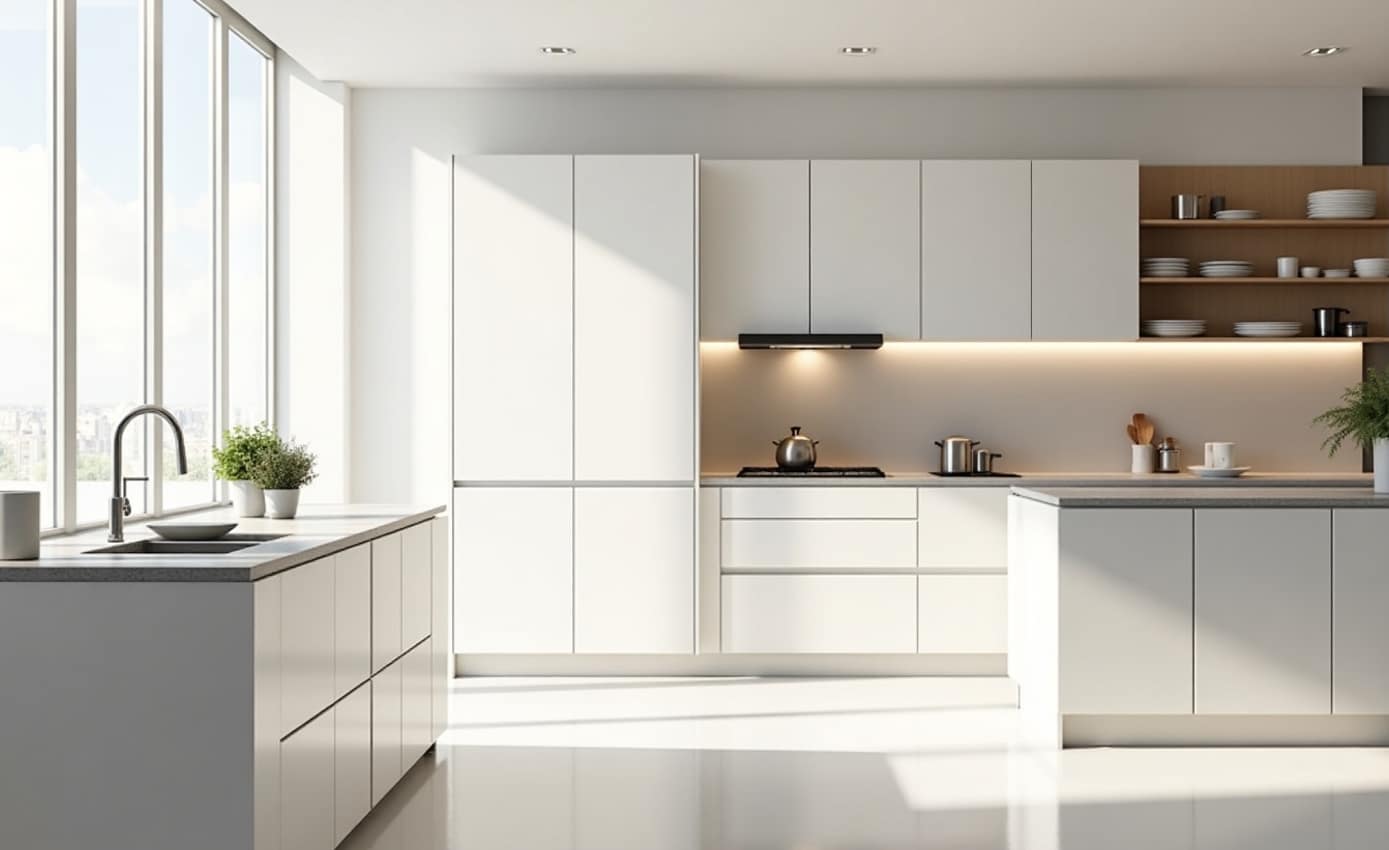
Know Who You're Dealing With
Start with kitchen cabinet maker due diligence. Investigate their production capacity, factory size, export experience (especially to your region), key clients, financial stability, and crucial certifications. Crucially, try to understand their pain points: their typical production cycles, inventory pressures, cash flow needs, and Minimum Order Quantities (MOQ). These aren’t just details; they’re potential negotiation entry points. And never settle for just one quote,collect at least 3 comparable quotes. Price isn’t the only factor—but it helps frame the playing field.
Learn to Speak Their Language Culturally
At the heart of Chinese business culture lies “Guanxi” (关系) – the importance of relationships. Trust and long-term cooperative bonds often outweigh a single transaction. Cultivating strong “Guanxi” can lead to better pricing, preferential treatment, and smoother resolution of any issues that arise. You also need to grasp the concept of “face” (面子). Always maintain respect and politeness to avoid causing either party to “lose face,” which can halt progress and damage future dealings. While Chinese cabinet manufacturers are often more flexible and adaptable than their Western counterparts, they thrive on clear instructions and expectations.
And know who makes decisions. Often, it’s not your sales contact—it’s the factory owner or general manager. Build rapport, and go direct if needed.
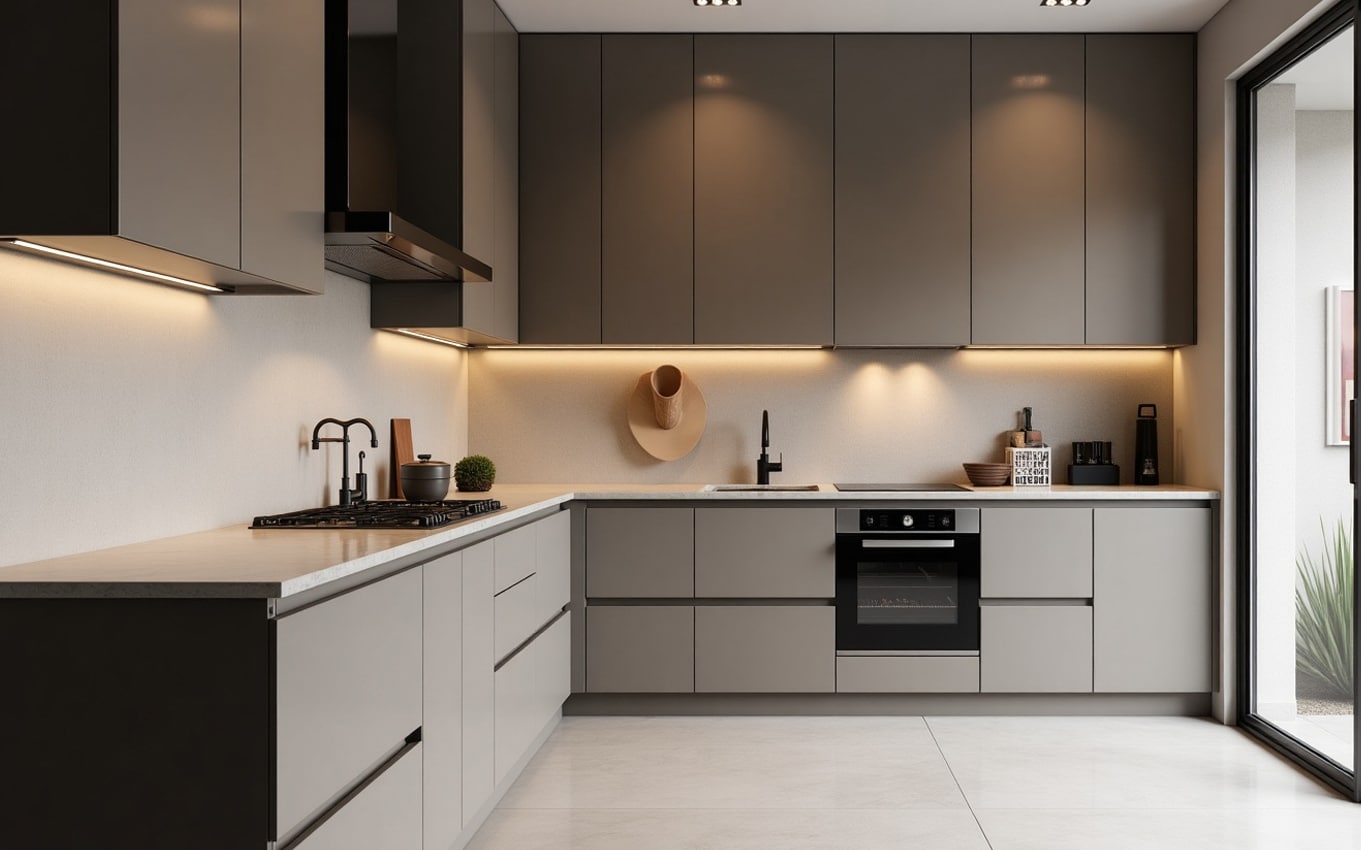
Have a project in mind? Send a message.
Get the catalog for free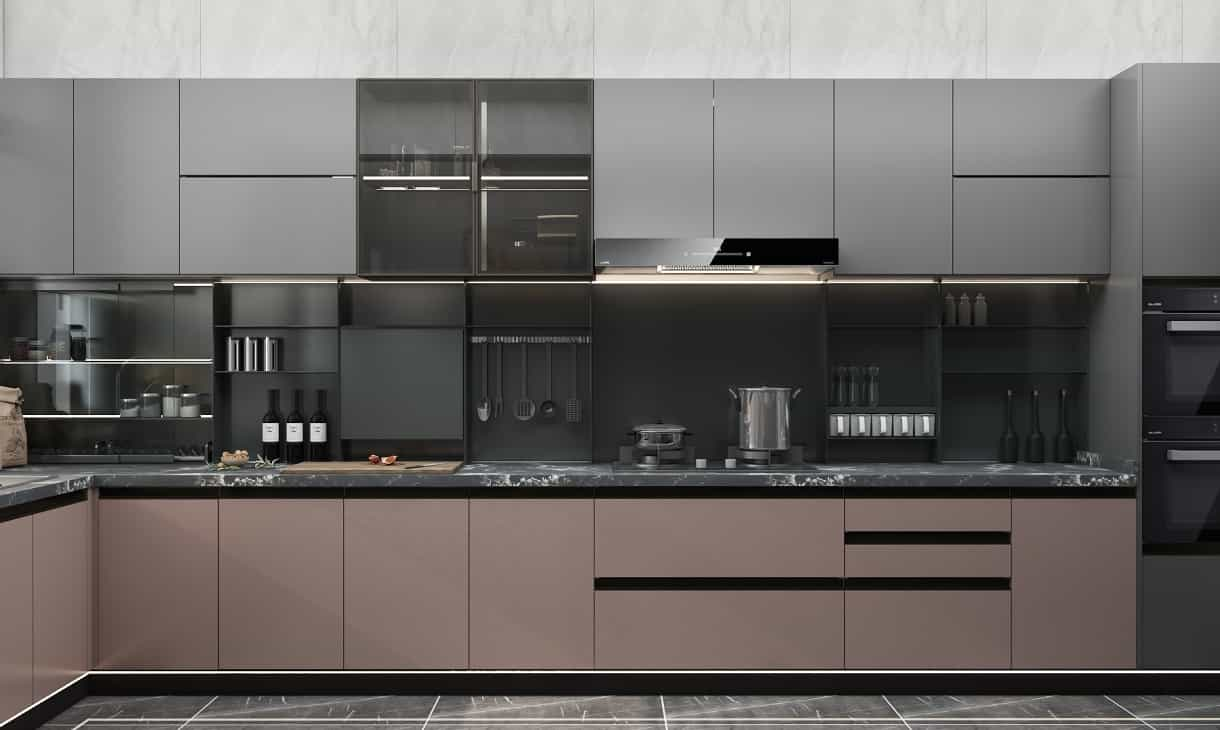
Core Negotiation Techniques That Actually Work
Come Prepared with Details
The more information you give, the better deal you get. Outline cabinet dimensions, preferred materials (e.g., plywood vs MDF), hardware brands, finish types, packing requirements, and even expected delivery times. Chinese cabinet suppliers respect well-informed buyers—and are less likely to inflate prices or cut corners.
Don’t Just Talk Price,Talk Value of the Custom Kitchen Cabinet
Instead of pushing for discounts alone, ask for value-added offers—like free upgrades to Blum hinges, soft-close drawers, or improved paint finishes. You can also negotiate for better after-sales service or packaging. These hidden upgrades often deliver more value than a simple price cut.
Bundle Orders Strategically
If you’re sourcing kitchen cabinets, wardrobes, and vanities, bundle them into one negotiation. This boosts your total order value and gives you stronger bargaining power. Chinese cabinet makers are far more flexible when they see larger volume and long-term cooperation potential.
Be Firm on Quality, Flexible on Logistics
You can show flexibility in packaging, delivery method (FOB, CIF, DDP), or batch shipping—but never compromise on materials or craftsmanship. Make it clear that quality issues will not be tolerated. This sets a boundary that suppliers will respect.
Put Everything in Writing,With Visuals
Verbal promises mean little. Use clear specs, images, drawings, and written agreements. Confirm even small adjustments — like hinge positioning or panel thickness — via message or email. Misunderstandings in Chinese cabinet factories often stem from vague instructions.
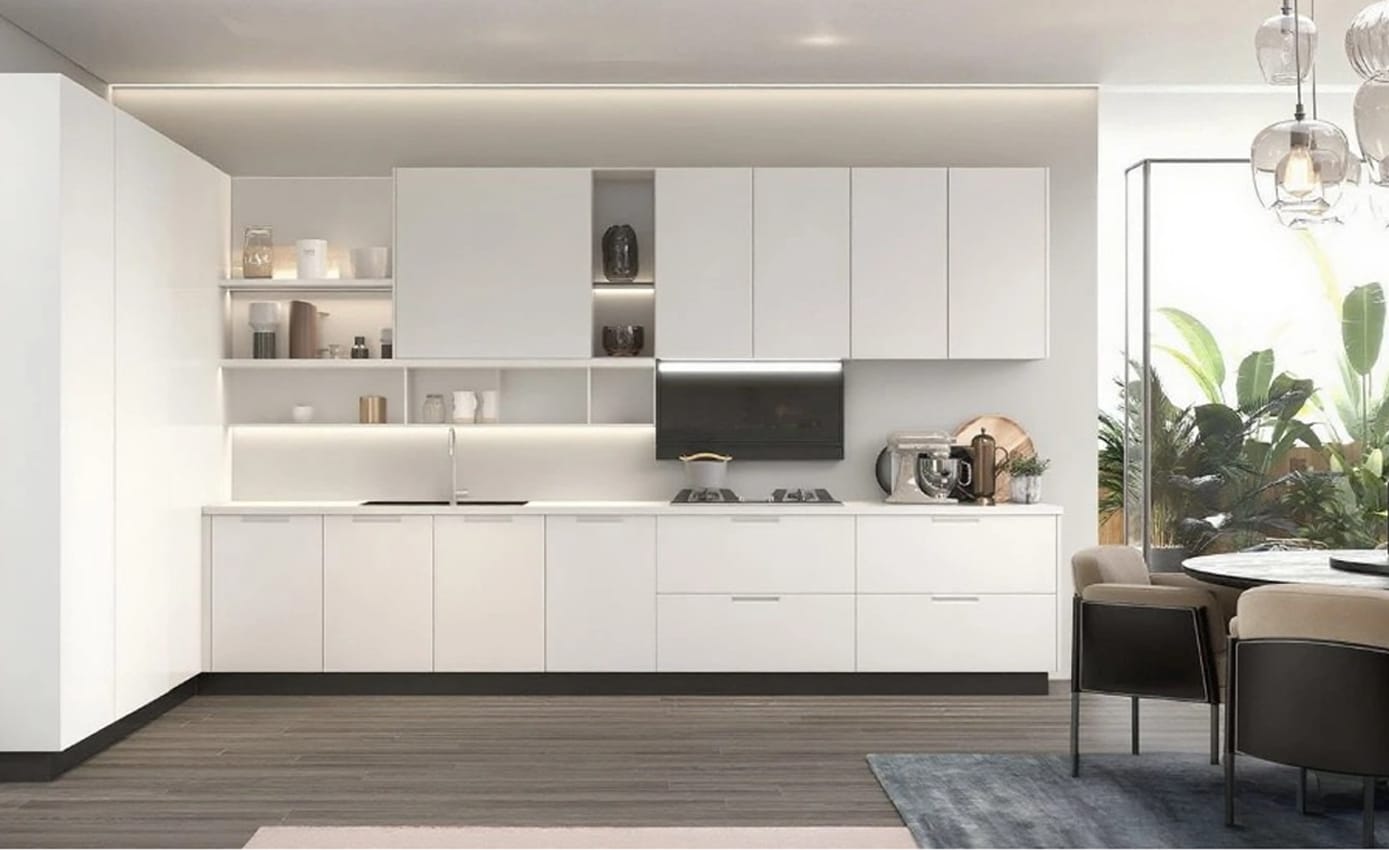
If talks stall, sometimes a dinner or casual setting can help break the ice. Yes, even KTV has closed major deals. And a final psychological tip: be patient, use silence, and be prepared to walk away. Impatience often leads to premature concessions. Silence can create pressure on the other party to respond or reveal more information. And suppliers need to know you have other viable options; expressing your willingness to walk away, when necessary, can often prompt them to offer better terms – but use this tactic wisely and with finesse.
Why It’s Worth It
The rewards of negotiating well when sourcing kitchen cabinets from China are immense: better quality, lower defect rates, on-time delivery, and stronger partnerships. It’s not about squeezing your supplier—it’s about building a relationship that scales with your projects.
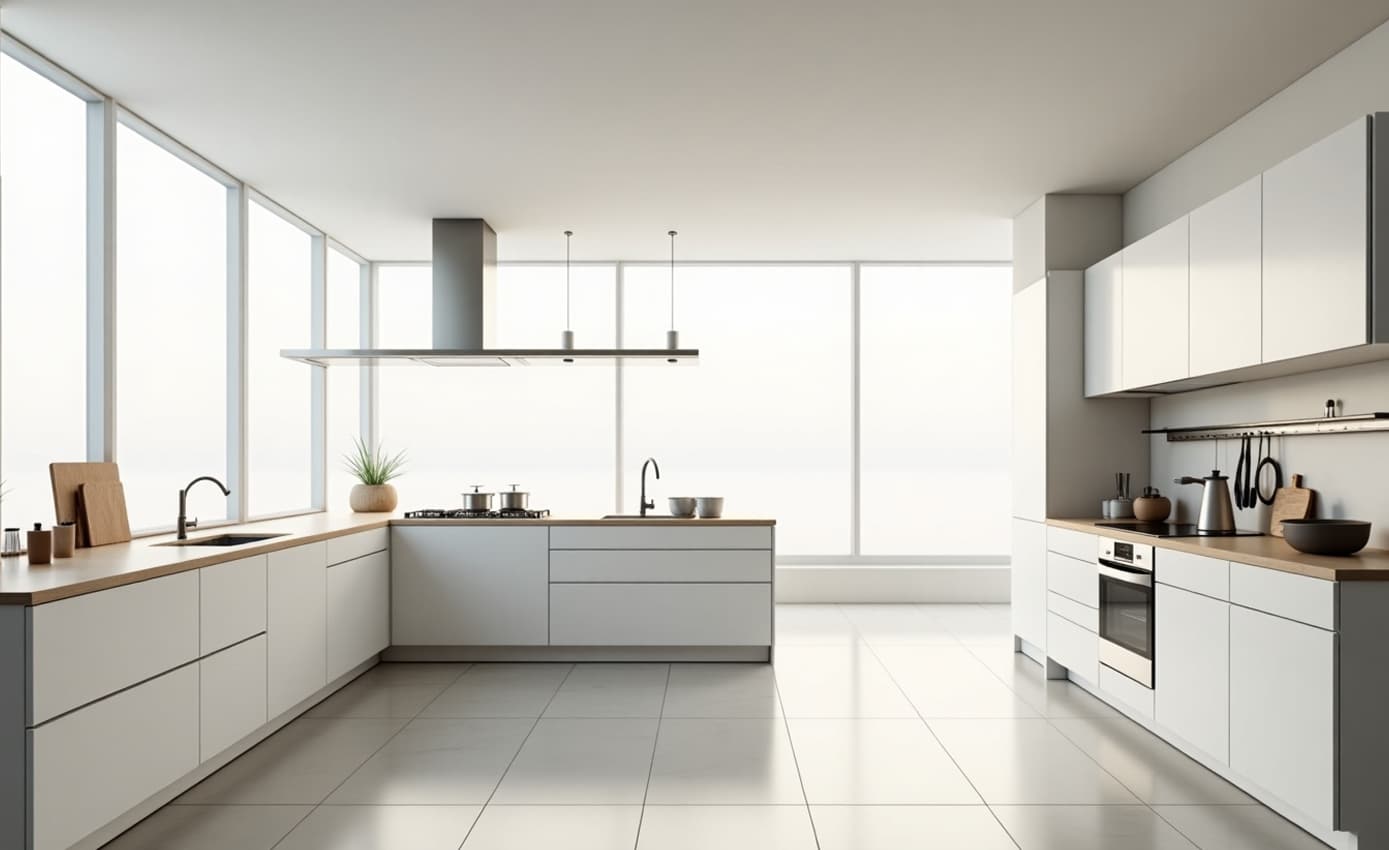
Our Trusted Recommendation for Your Next Project
For over a decade, Nexthome Furnishing has been a trusted name in high-end custom cabinetry and integrated home solutions in China. We specialize in kitchen cabinets, wardrobes, and storage systems—offering end-to-end services from design to OEM and full customization. If you’re looking for reliable Chinese kitchen cabinet suppliers with a track record of excellence, especially for minimalist kitchen cabinets and tailored designs, we invite you to explore how Nexthome Furnishing can bring your vision to life.
Contact NextHome Now!
We are here to help you with your business needs. We have a team of experts who are always eager to help you.

